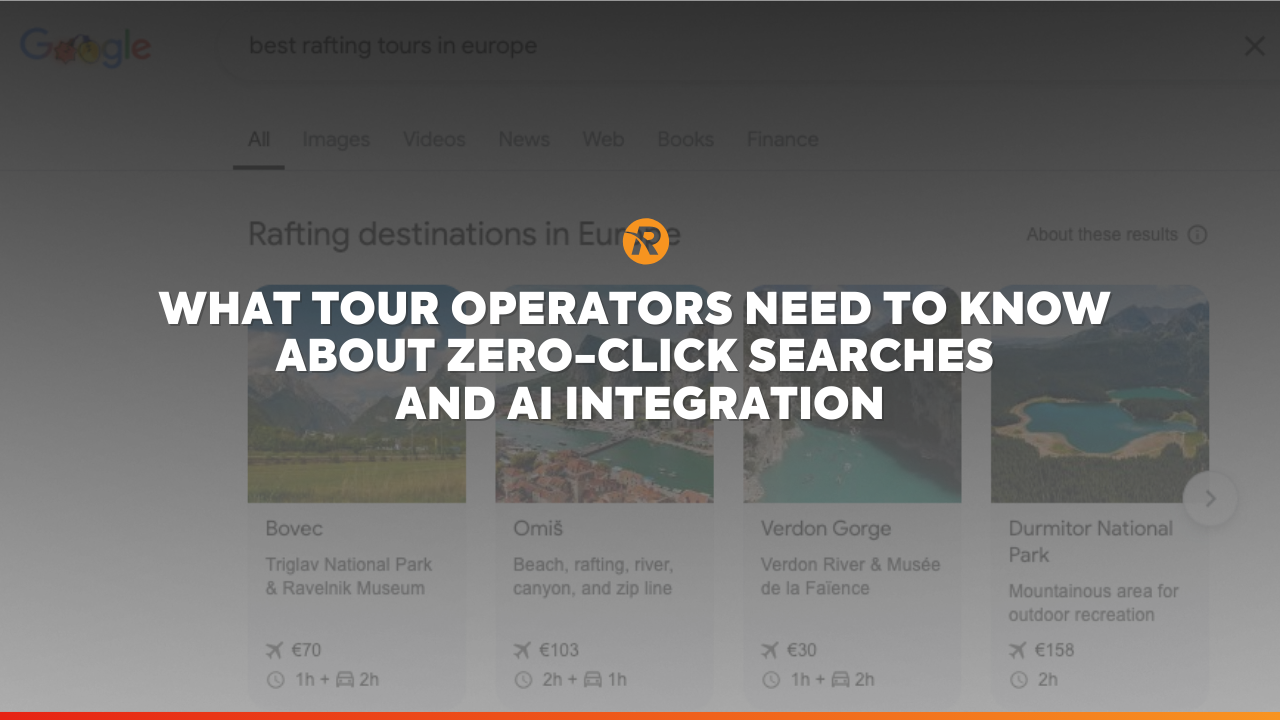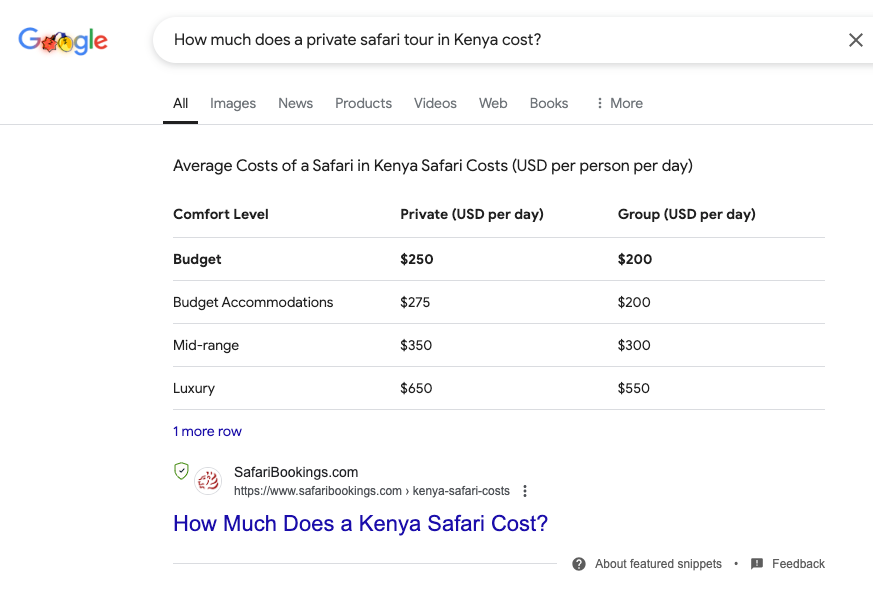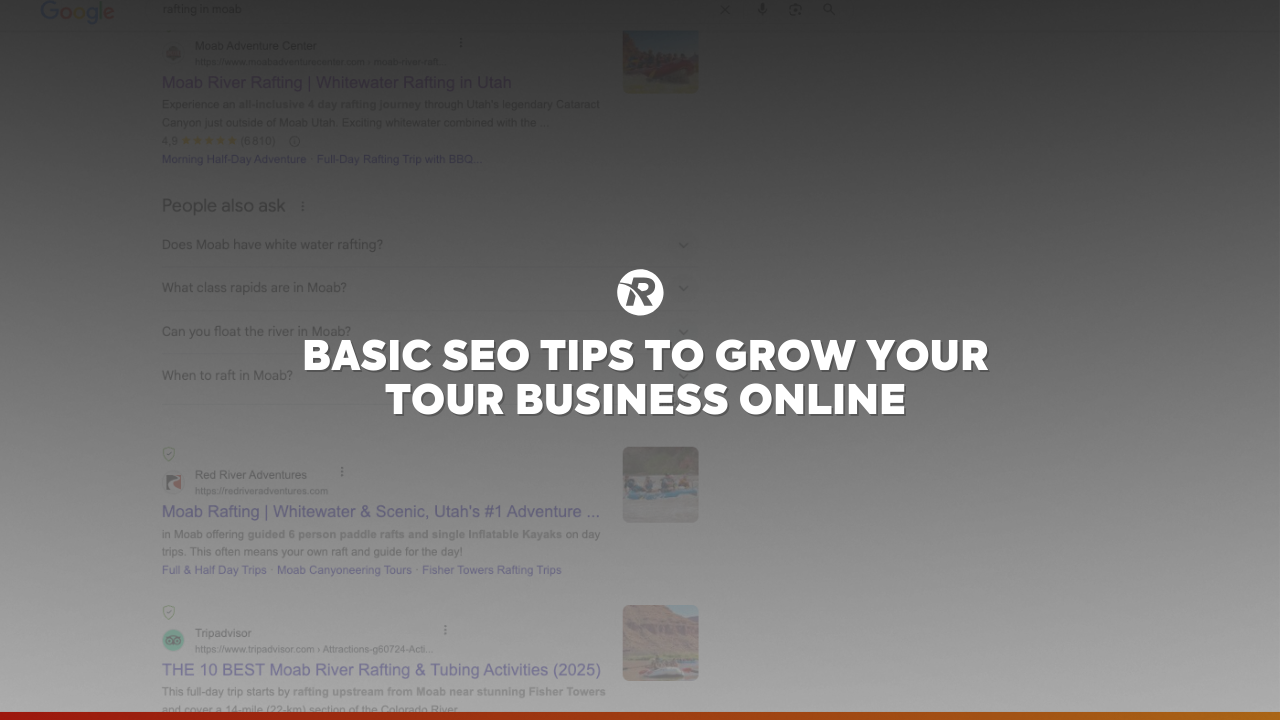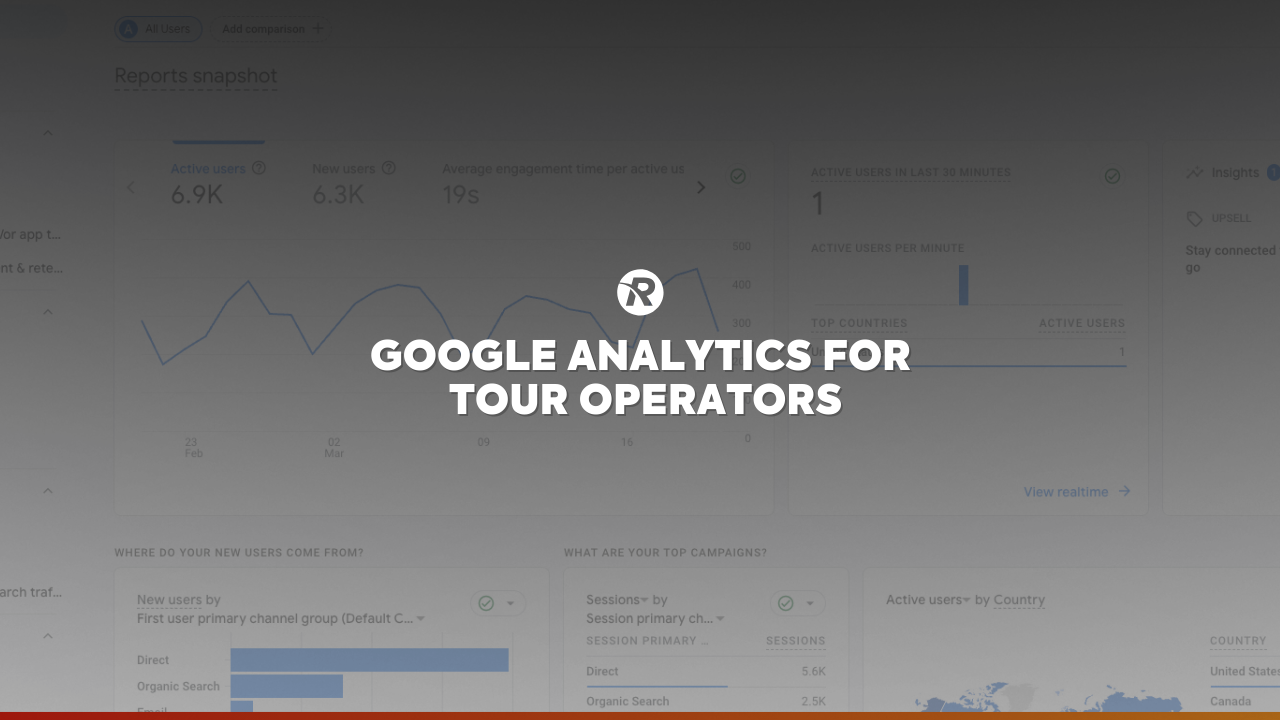What Tour Operators Need to Know About Zero-Click Searches and AI Integration
If you’re a tour operator, you’ve probably noticed something: the way travelers find and book tours is changing fast. Thanks to zero-click searches and AI, the rules of the game have shifted. It’s no longer just about showing up in search results—now it’s about being the answer people see right there on the page.
Gone are the days when a spot on Google’s first page guaranteed clicks. Today, search engines often serve up everything travelers need—answers, reviews, even pricing—without them ever leaving the results page. That means fewer clicks to your site and more competition to stay visible.
And let’s not forget AI. Search engines are getting smarter, offering hyper-personalized, intent-driven results. If your tours aren’t optimized for this, it’s easy to get lost in the noise.
But don’t panic! In this post, we’ll unpack exactly what zero-click searches and AI integration mean for tour operators and, more importantly, how you can adapt. By the end, you’ll have actionable tips to ensure your tours aren’t just seen—they’re booked. Let’s dive in.

What Are Zero-Click Searches?
Data from SparkToro reveals that 59.7% of all searches in the European Union and 58.5% in the United States end without a click. These “zero-click searches” occur when a search query is answered directly on the search engine results page (SERP) without the user needing to click on a link. This can happen with featured snippets, knowledge panels, Google’s rich answers, or other AI-powered results that display information directly within the search interface.
For instance, a search query like “best walking tours in Barcelona” might return a list of tour options, durations, prices, and user reviews directly on the search results page—leaving users satisfied without needing to click through to any external websites. This is a growing trend, particularly in sectors like tourism, where people increasingly seek quick, concise answers without leaving the search results.
Another example, in the image below, we searched for the cost of a private safari in Kenya and received our answer without ever having to click on a site.

Insights from SparkToro’s 2024 Zero-Click Search Study
Let’s dive more into the data.
The study by Rand Fishkin of SparkToro, based on clickstream data from Datos (a Semrush Company), provides eye-opening insights into the rise of zero-click searches:
- For every 1,000 Google searches in the US, only 360 clicks go to non-Google-owned, non-Google-ad-paying properties. In the EU, this number is slightly higher at 374 clicks.
- Zero-click searches account for 58.5% of searches in the US and 59.7% in the EU.
- Google is sending less traffic to the open web, with historic lows for clickthroughs to non-Google properties in both regions.
- Despite concerns about losing market share, Google’s searches per searcher remain at historic highs in both the US and EU.
- The study also notes a continued preference for sending search clicks to Google’s own properties, especially in the US.
- Interestingly, the brief rollout of AI Overviews in May 2024 showed minimal impact, with the most notable change being a decrease in mobile searches during that period. Mobile searches now account for nearly two-thirds of all Google queries in both regions.
Fishkin’s analysis suggests that while Google’s search volume remains strong, its growing reliance on zero-click results and self-preferencing practices raises concerns about the health of the open web and competition. The study also highlights differences in search behavior between the US and the EU, possibly influenced by
EU regulations.
The Role of AI in Search
AI technology, particularly tools like Google’s AI Overviews and large language models (LLMs) like ChatGPT, is playing a growing role in this shift. AI is increasingly integrated into search results, with Google using machine learning models to generate more informative, direct answers to user queries.
This shift toward AI-driven search is expected to further increase the prevalence of zero-click searches. With AI delivering richer, more personalized results, users are increasingly finding what they need directly within Google’s interface. While this improves user experience, it presents a clear challenge for tour operators:
adapt to these zero-click search strategies or risk fading into irrelevance. Staying visible requires evolving with the trends—because being "invisible" in search results is not an option if you want to be successful.
Why Does This Matter for Tour Operators?
For tour operators, this trend is a significant shift from traditional search behaviors, where users would click through to websites to explore options, check availability, and make bookings. In the era of zero-click searches, your website might not even get the opportunity to be seen, let alone clicked.
As the Safari inquiry above shows, Google’s growing ability to answer queries within the search results is making it harder for businesses, especially those in highly competitive industries like tourism to attract organic traffic.
Here's another example, if a search query about a specific destination returns a featured snippet with detailed information about activities, weather, and local tips, the user the user is probably not going to visit a tour operator’s website at all. Would you visit a website if you got all the answers you need?!
This trend raises a crucial question for tour operators:
How do you make sure visibility when so many searches end with no clicks? Let's dive into it!
Strategies for Adapting to Zero-Click Searches
While the rise of zero-click searches presents significant challenges, there are ways for tour operators to adapt and ensure their businesses still receive exposure. Here are some strategies to consider:
- Focus on Content That Answers Specific Questions: One of the key drivers behind zero-click searches is that they provide users with specific, valuable information right away. Tour operators can optimize their websites by creating content that answers common questions travelers have. By addressing user queries with detailed, structured answers, you increase the chances of Google selecting your content for featured snippets or other zero-click content. (A good FAQ is essential!).
- Leverage Local SEO: For tour operators who focus on specific destinations, local SEO is crucial. Google’s local panels and maps often display businesses and services directly in the search results. Making sure your business is listed in the Google Business Profile section and optimized for local search can increase your visibility even in a zero-click environment. This includes ensuring your location, reviews, and contact information are up to date.
- Invest in Structured Data Markup: Google uses structured data (schema markup) to understand the content of your web pages and display it in a way that’s more likely to appear in zero-click results. Adding structured data to your pages for things like tours, itineraries, and customer reviews can help improve your chances of showing up in rich results, even when a click isn’t involved.
- Embrace AI Tools for Personalization: While Google’s AI integrations pose a challenge, tour operators can also use AI tools to enhance their own marketing strategies. AI-powered chatbots, personalized recommendations, and dynamic content can make your website more engaging, even if users aren’t clicking as often. Personalization can create a more seamless experience that encourages deeper engagement when users do click through to your website.
- Diversify Your Marketing Channels: Relying solely on organic search traffic is no longer enough. Tour operators should focus on
diversifying marketing channels by investing in paid search ads, social media marketing, influencer collaborations, and email campaigns. These channels can help you reach potential customers in different ways, bypassing the limitations of zero-click search results.
The Future of Search for Tour Operators
As zero-click searches continue to rise, and AI tools reshape the search landscape, tour operators must adapt. While this is a challenge, it can also create opportunities for businesses that are willing to evolve.
By optimizing for features like rich snippets, local SEO, and AI-powered tools, tour operators can maintain their visibility in a changing digital landscape. Moreover, by diversifying marketing strategies and ensuring their content answers user queries directly, they can continue to drive traffic and attract customers even in the age of zero-click searches.
The future of search is here, and it’s crucial for tour operators to stay ahead of the curve. With the right strategies, tour operators can navigate these changes and ensure they continue to capture the attention of travelers searching for the perfect getaway.
So What Can Tour Operators Do Now?
You don’t have to navigate all these changes alone. Partnering with SEO experts like us at ResmarkWeb (unapologetic plug 😉) can help you stay ahead of the curve in 2025.
By working with a team that understands the nuances of SEO and search trends, we can help you stay up to date with the latest changes and actually implement the strategies that will ensure your visibility and continued growth. From optimizing your content for zero-click searches to refining your local SEO and leveraging structured data, we’re here to guide you every step of the way… just like we do for these companies!
Book your call below for a free SEO analysis.



